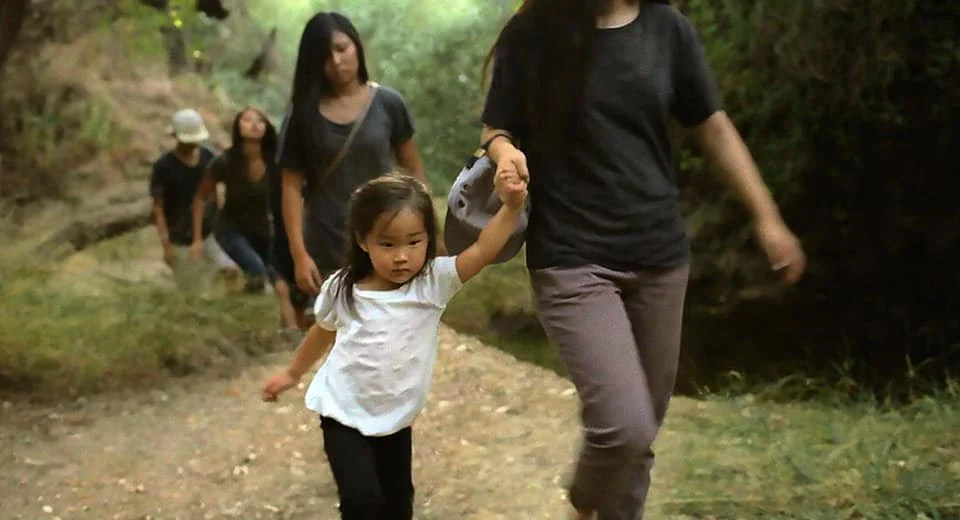What’s happening inside North Korea?
By the HanVoice Education Committee
February 1, 2022
Image by Liberty in North Korea
In 2021, a record low 63 North Korean escapees made their way to South Korea – compared to over 1,000 escapees in 2019. As North Korea’s recent series of missile testing dominates the headlines, the humanitarian crisis in North Korea is worsening. What’s behind North Korea’s ongoing economic crisis? And what does it mean for North Koreans inside the country and for those trying to flee?
In early 2020, North Korea sealed its borders in response to the COVID-19 pandemic. Nearly all trade with China, the DPRK’s largest trading partner, was suspended. As a result of COVID-19 related border closures as well as continued pressure from international sanctions and a series of natural disasters likely fueled by climate change, North Korea currently faces a worsening economic crisis and severe food shortage. North Korea’s GDP in 2020 saw its biggest decline since 1997 when the country suffered from a devastating famine that killed an estimated five percent of the population.
Recent developments inside North Korea indicate that the economic situation remains severe. In a speech outlining his policy goals for 2022, North Korean leader Kim Jong Un emphasized the need for economic and rural development, referring to economic development as an issue of “great life-and-death struggle.” Kim’s concerns echo similar statements made last year when North Korean officials admitted that the country was suffering from a “food crisis.”
Kim Jong Un even urged the country to prepare to “wage another more difficult ‘Arduous March’,” a term which North Korea uses to reference the deadly famine in the 1990s. Although North Korea recently resumed limited rail-based trade with China, all imported goods to North Korea are now subject to a three-month-long quarantine.
There is little indication that North Korea’s trade with China will resume to pre-pandemic levels in the near future, meaning that its humanitarian crisis is expected to continue.
North Korea’s handling of the COVID-19 pandemic also raises concerns about the human rights situation inside the country. In an October 2021 report, the Special Rapporteur on the situation of human rights in the Democratic People’s Republic of Korea noted that internal COVID-19 restrictions and continued isolation of the country have led to a deterioration of the human rights situation.
The Special Rapporteur remarked on North Korea’s food insecurity and “severe economic hardship,” which are a result of “prolonged and strict COVID-19 measures.” Such measures include tight restrictions on internal travel and harsh penalties for those who break quarantine rules. In 2020, North Korea reportedly executed an official who failed to abide by anti-virus measures.
In June 2021, an apparent failure in the country’s anti-virus prevention measures led Kim Jong Un to condemn high-ranking officials of the Korean Workers’ Party for causing a “great crisis.” Furthermore, the DPRK has yet to report a single COVID-19 case since the pandemic began — a claim which many experts are skeptical of due to the country’s inadequate health care system.
The country has also refused to accept COVID-19 vaccines distributed through COVAX. With Kim Jong Un vowing to maintain anti-pandemic measures through 2022, it is likely that North Korea will continue to use the pandemic to strengthen control over its people as its humanitarian crisis persists.
Image by Cha Song Ho, Associated Press
Perhaps the strictest of North Korea’s anti-pandemic measures is evident at the country’s northern border with China. In 2020, security at the Chinese border intensified due to the COVID-19 pandemic.
Buffer zones were created on each side of the border, while North Korean border guards were ordered to “shoot on sight” any person attempting to cross the border without authorization. Attempting to cross the border into China has always been dangerous. Illegal border crossing is considered a crime in North Korea, with punishments ranging from less than two years to up to five years in a labour camp depending on the offence.
Those who crossed the border in search of economic activity or a relative in China may receive lighter punishments, while those who are deemed to have been in contact with a South Korean national or Christian missionary receive harsher punishments.
Moreover, defection itself is considered a political or anti-state crime. Since Kim Jong Un came to power, punishments for North Koreans who try to escape the country have become harsher. The number of North Korean escapees making their way to South Korea has also fallen under Kim Jong Un.
Despite the risks, North Korea’s border with China remains the most popular route for North Korean escapees. For years, many North Korean escapees have relied on an “informal network of brokers, charities, and middlemen,” to safely travel through China to Southeast Asia before reaching South Korea. A report by the Committee for Human Rights in North Korea found that around half of North Korean escapees paid brokers in order to leave the country. Once settled in South Korea, escapees often rely on brokers to deliver remittances to their family members still in North Korea.
Although the use of foreign cell phones is illegal in North Korea, brokers with access to Chinese cellular towers near the border can send money to escapees’ families in the North. Some North Koreans may even use brokers to call family who have escaped.
Since the pandemic, however, North Korean officials have been increasingly cracking down on brokers near the Chinese border. Escapees in South Korea have reported not being able to contact their loved ones in weeks or several months.
Sending money back home to North Korea has also become more difficult as the cost of affording a broker has risen by around 20 percent. And as the economic crisis in the country deepens, some North Koreans have come to rely on remittances from their family members who have escaped.
Although communication between North Korean escapees and their families left behind has always been risky, the use of brokers remained one of the few ways for escapees to contact their families in North Korea. As a result of COVID-19, the ties between North Korean escapees and their family members have significantly weakened.
China has also cooperated with North Korean officials to enforce strict border measurements. In 2021, China resumed its forced repatriation of North Korean escapees after being ordered by North Korea at the beginning of the pandemic (as part of the DPRK’s border closures) to halt the return of any persons who illegally crossed the border.
By July 2021, however, Radio Free Asia reported that nearly 50 North Korean escapees who crossed into China were forcibly returned to North Korea. 1,170 North Koreans were reportedly being held in detention camps in China. China classifies all North Korean escapees as illegal “economic migrants” who do not meet the definition of a refugee according to the 1951 UN Convention Relating to the Status of Refugees. Rather, China maintains that North Koreans who cross the border are seeking economic opportunities.
This argument emerged in the late 1990s when many North Koreans began to cross into China in search of food or work due to the famine. Since then, China has forcibly returned North Korean escapees and argued that it is obligated to uphold a 1986 bilateral border agreement with North Korea in which both sides agreed to return any person found to be illegally crossing the border. China also prohibits the UNHCR from accessing its border with North Korea, preventing North Korean escapees from having their refugee status determined.
Image by Liberty in North Korea
China’s forced repatriation of North Korean escapees is a violation of international law, including the 1951 UN Convention on Refugees and its 1967 protocol as well as the Convention against Torture and Other Cruel, Inhuman or Degrading Treatment or Punishment. These two conventions, both of which China ratified, forbid any state party to return a refugee to a place where they may face persecution based on “race, religion, nationality, membership of a particular social group or political opinion.”
China’s forced repatriation of North Korean escapees is a violation of international law.
Since defection is considered a political crime inside North Korea, escapees who are forcibly returned are at risk of persecution and harsh treatment. The 2014 UN Commission of Inquiry report on human rights in the DPRK found that “crimes against humanity have been and, are still being committed, against persons who try to flee the DPRK, including against persons forcibly repatriated from China.” Some of these crimes include imprisonment, arbitrary detention, execution, torture, murder, rape, sexual violence, and enforced disappearance. Instead of allowing North Korean escapees their internationally recognized right to seek asylum or guaranteeing safe passage to a third country, China’s forced repatriation policy directly aids the DPRK’s crimes against humanity and other gross human rights violations committed against North Koreans forcibly returned from China.
These practices also have severe implications for North Korean women who are forcibly returned from China. North Korean women make up the majority of North Koreans who flee the country. They are also highly susceptible to trafficking inside China and may be subject to forced marriages with Chinese farmers, prostitution, or cybersex. As a result, women who attempt to flee North Korea are at risk of harsh treatment and sexual violence if repatriated from China.
Pregnant women, for example, are especially vulnerable and can be forced to have abortions or be subject to infanticide. Classified as a crime against humanity by the Commission of Inquiry report, forced abortions often occur when North Korean officials accuse the mother of having had sexual intercourse with a Chinese man. Racist attitudes about mixed-raced individuals, which are common in North Korea and are fuelled by a desire to maintain a “pure Korean race,” form the motivation for forced abortions and infanticide against women who are repatriated from China.
Image by Liberty in North Korea
It’s more important now than ever that North Korean escapees are protected.
As the humanitarian situation inside North Korea deteriorates and the DPRK continues to prohibit international humanitarian organizations from accessing the country, it is imperative that China immediately ends its forced repatriation of North Korean escapees. North Korean escapees in China and elsewhere must be given the protections granted to them under international law, including access to asylum or guaranteed safe passage to South Korea.




